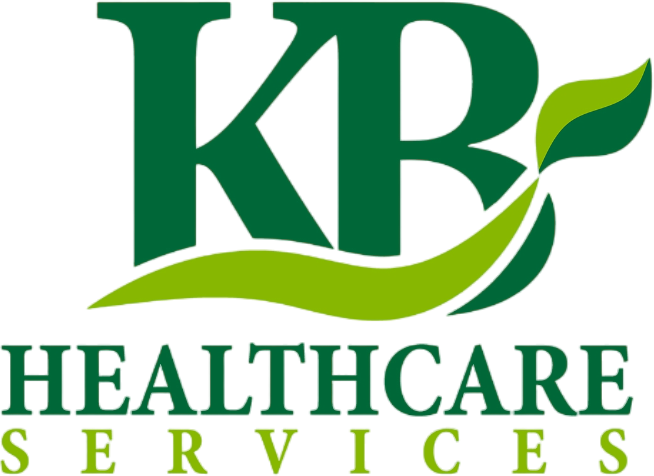Early Signs Aging Parents Need Home Care: What to Watch
Caring for aging parents is a responsibility many of us face. It can be difficult to know when they need extra help.
Small changes in their daily routines or behavior might be signs they need home care. Watching for these signs early can make a big difference in their quality of life.
Home health care in Sterling VA provides support for seniors, ensuring they stay safe and comfortable. This care helps your loved ones maintain independence while giving you peace of mind.
Knowing when to seek professional help is an important step in providing the best care for your parents. This blog post will discuss some of the early signs that aging parents may need home care.
Recognizing the Early Signs
It's not always easy to determine when aging parents might need extra help. However, there are physical, mental, and behavioral changes that could indicate they may require home care assistance.
Physical Health Indicators
One of the first areas adult children may notice concerns is physical health. Common signs include:
- Difficulty with mobility, such as trouble climbing stairs or frequent falls.
- Poor hygiene, such as wearing the same clothes for days or neglecting regular grooming.
- Sudden or unexplained weight loss, which might indicate dietary neglect or health issues.
If you observe these changes, it might signal the need for home care assistance in Fairfax, VA. Daily chores like meal prep, bathing, and housekeeping might be becoming too strenuous for your parent.
Mental Health Indicators
Mental and emotional health can reveal a lot about your parents’ well-being. Look out for:
- Memory issues, such as forgetting appointments, important dates, or everyday tasks like turning off the stove.
- Confusion or disorientation, especially in familiar environments.
- Mood or personality changes, including increased irritability, withdrawal, or frequent sadness.
These could be early signs of cognitive decline or depression, requiring timely intervention and possibly involving in-home care.
Behavioral and Environmental Indicators
Your parents' living environment and behavior can also provide clues:
- Piles of unopened mail or overdue bills.
- A cluttered, untidy home that was once always clean and organized.
- Food that’s expired but still stored in the fridge.
These changes might reflect declining energy levels, forgetfulness, or even safety concerns that can benefit from home care services.
The Importance of Early Detection
Recognizing these indicators early allows for timely intervention, which offers several benefits:
- Improved Quality of Life: Early home care support can ensure that your parents' daily needs are met without compromising their independence.
- Prevention of Major Issues: Tripping hazards, undiagnosed depression, or unmanaged health conditions can be addressed before escalating into crises.
- Streamlined Care Transition: Gradually introducing care helps parents adjust more easily, making the process less daunting for everyone involved.
Taking action sooner rather than later can provide your loved ones with the dignity and care they deserve, while giving you the peace of mind that they're safe and supported.
How to Approach the Conversation
Bringing up the subject of home care can be emotionally charged. Many elderly parents value their independence and might feel apprehensive about the idea of receiving help.
Here’s how to handle the conversation with sensitivity:
1. Pick the Right Time: Choose a moment when both you and your parents are relaxed and have time to talk. Avoid bringing up the topic in a rushed or stressful situation.
2. Lead with Empathy: Instead of focusing on their decline, emphasize how care can improve their comfort and quality of life. For example: "We’ve noticed how much you’ve been juggling on your own. We want to find ways to make things easier for you so you can spend more time doing the things you love."
3. Highlight the Benefits: Talk about how home care can help with specific challenges, such as fall prevention or meal prep, while allowing them to remain in the comfort of their own home.
4. Be Patient: Give them time to process the idea and express their thoughts or concerns. The goal is to make it a collaborative decision, not a directive
Exploring Home Care Options
When your parent is ready, it’s time to explore the types of care available. Whether they need basic help around the house or extended medical supervision, there is a solution to fit their lifestyle.
Home Health Agencies in Fredericksburg, VA
At home care companies in Fredericksburg, VA, offer a comprehensive range of services, including skilled nursing care and wellness checks. These professionals can help manage chronic conditions, administer medications, and provide medical expertise in the comfort of your loved one's home.
Private Caregivers
You might also consider hiring private, in-home caregivers for seniors in Sterling, VA. This allows for more flexibility in tailoring care services, such as meal preparation, transportation, or companionship, depending on your parent’s specific needs.
Finding the right type of care often involves consulting multiple agencies, conducting interviews, and understanding your parent’s specific preferences. Don’t rush this step—what works for one person may not work for another.
Planning for the Future
Proactively planning for your parents’ care can help reduce stress for both you and them. Here’s how to create a thoughtful care plan:
1. Evaluate Their Needs: Work with your parent to determine the areas where they require help—whether it’s grocery shopping, medication management, or mobility.
2. Set a Budget: Understand the costs associated with care services and explore options like insurance and government assistance to help cover expenses.
3. Stay Flexible: Circumstances can change. Regularly reassess their health, preferences, and care needs to ensure the plan evolves accordingly.
4. Keep Communication Open: Encourage an ongoing dialogue with your parent to address their concerns or adjustments they might need.
Creating a comprehensive care plan ensures your aging parent’s needs are met while respecting their preferences and autonomy.
Supporting Your Aging Parent Starts Today
Recognizing the early signs that your aging parents may need help is key to ensuring their safety and well-being. From physical and mental health changes to home care solutions like home health agencies in Fredericksburg, VA, there are plenty of resources available to support their needs.
Remember, taking action doesn’t mean taking control—it's about working together to chart the best path forward.
For compassionate, professional guidance, reach out to our team to explore the best in-home caregivers for seniors in Sterling, VA and beyond.










